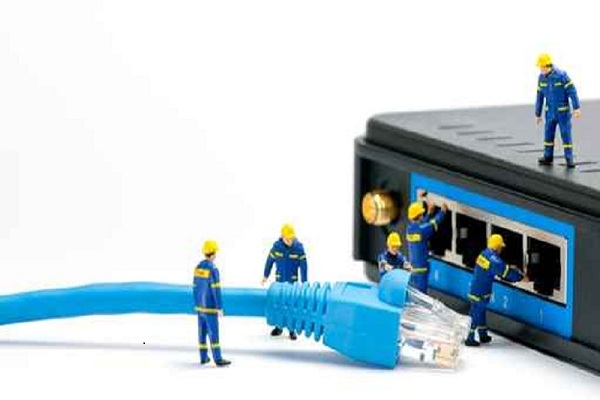'New wireless devices will save lives' says Ofcom
An Ofcom report, researched over 18 months, looks at how wireless technology could develop in the next decade and beyond - but warns that spectrum needs to be better managed.

Ofcom says more radio spectrum is needed for new wireless technologies - the benefits of which could include warning doctors about heart attacks and the prevention of cars from colliding with each other.
A new Ofcom report released today entitled 'Tomorrow's Wireless World' has made predictions about advances and innovations, which could be available in the next 10 or 20 years. Most involve transport and healthcare but some also touch other areas of everyday life such as entertainment and commerce.
In healthcare the report predicts an 'in-body network', implanted within a patient's body, which would enable doctors to remotely examine their progress.
It describes on-body monitors, that check pulse and blood pressure, with the signal sent wirelessly to portable monitors, and 'intelligent' pill dispensers that would sound an alarm if they weren't opened at the required time.
"Our lives continue to be transformed by developments in wireless technology," said Professor William Webb, head of research and development at Ofcom.
"Ofcom's research and development report highlights how a range of innovative new technologies could enhance transport and healthcare. It helps Ofcom plan for future spectrum use to benefit citizens and consumers".
The report also describes wireless technology for food. This could enable people to scan the content of food wrappers using existing Radio Frequency Identification (RFID) tags, which would be particularly useful for those with food allergies.
Get the ITPro daily newsletter
Sign up today and you will receive a free copy of our Future Focus 2025 report - the leading guidance on AI, cybersecurity and other IT challenges as per 700+ senior executives
In transport it predicts intelligent systems where cars communicate wirelessly with each other to prevent collisions. In-car wireless technology would also automatically alert emergency services in the event of an accident as car-to car-communication would alert drivers to traffic jams.
It would also revealed more developments in e-transport systems, where one e-ticket could be used on all modes of transport, be it buses, trains and planes, simplying travel arrangements.
Peter Ingram, Ofcom's chief technology officer, said: "This report demonstrates the many creative ways the radio spectrum can be used for the benefit of UK citizens and consumers."
However, Ofcom made it clear that radio spectrum needs to be better managed. It said that spectrum was a finite resource, and that its technology research would help it better understand how to use it in the future.
-
 Should AI PCs be part of your next hardware refresh?
Should AI PCs be part of your next hardware refresh?AI PCs are fast becoming a business staple and a surefire way to future-proof your business
By Bobby Hellard Published
-
 Westcon-Comstor and Vectra AI launch brace of new channel initiatives
Westcon-Comstor and Vectra AI launch brace of new channel initiativesNews Westcon-Comstor and Vectra AI have announced the launch of two new channel growth initiatives focused on the managed security service provider (MSSP) space and AWS Marketplace.
By Daniel Todd Published
-
 New Ofcom guidelines show it’s getting tougher on big tech
New Ofcom guidelines show it’s getting tougher on big techNews New Ofcom guidance outlining its plans for the Online Safety Act show the regulator is toughening up on big tech.
By Emma Woollacott Published
-
 Ofcom’s draft guidelines on illegal online content set stringent rules for big tech
Ofcom’s draft guidelines on illegal online content set stringent rules for big techNews The codes of practice gives an insight into what the Online Safety Act will mean in practice
By Ross Kelly Published
-
 UK gov urged to ease "tremendous" and 'unfair' costs placed on mobile network operators
UK gov urged to ease "tremendous" and 'unfair' costs placed on mobile network operatorsNews Annual licence fees, Huawei removal costs, and social media network usage were all highlighted as detrimental to telco success
By Rory Bathgate Published
-
 UK regulator to investigate Amazon, Microsoft, Google cloud services competition
UK regulator to investigate Amazon, Microsoft, Google cloud services competitionNews The regulator is hoping to publish a final report, including its concerns or proposed recommendations, within 12 months
By Zach Marzouk Published
-
 We're addicted to our phones, according to Ofcom
We're addicted to our phones, according to OfcomNews Although always being connected means flexible working, some think it's having a negative impact on relationships
By Clare Hopping Published
-
 Ofcom reveals automatic compensation for ripped-off broadband customers
Ofcom reveals automatic compensation for ripped-off broadband customersNews £142 million will be automatically paid out to customers receiving a delayed service
By Clare Hopping Published
-
 Three fined £1.9m for 999 call flaw
Three fined £1.9m for 999 call flawNews Ofcom investigation reveals emergency calls were routed through a single data centre
By Dale Walker Published
-
 Ofcom fines EE £2.7m for overcharging 40,000 customers
Ofcom fines EE £2.7m for overcharging 40,000 customersNews Customers dialling 150 number abroad were overcharged £245,700
By Joe Curtis Published